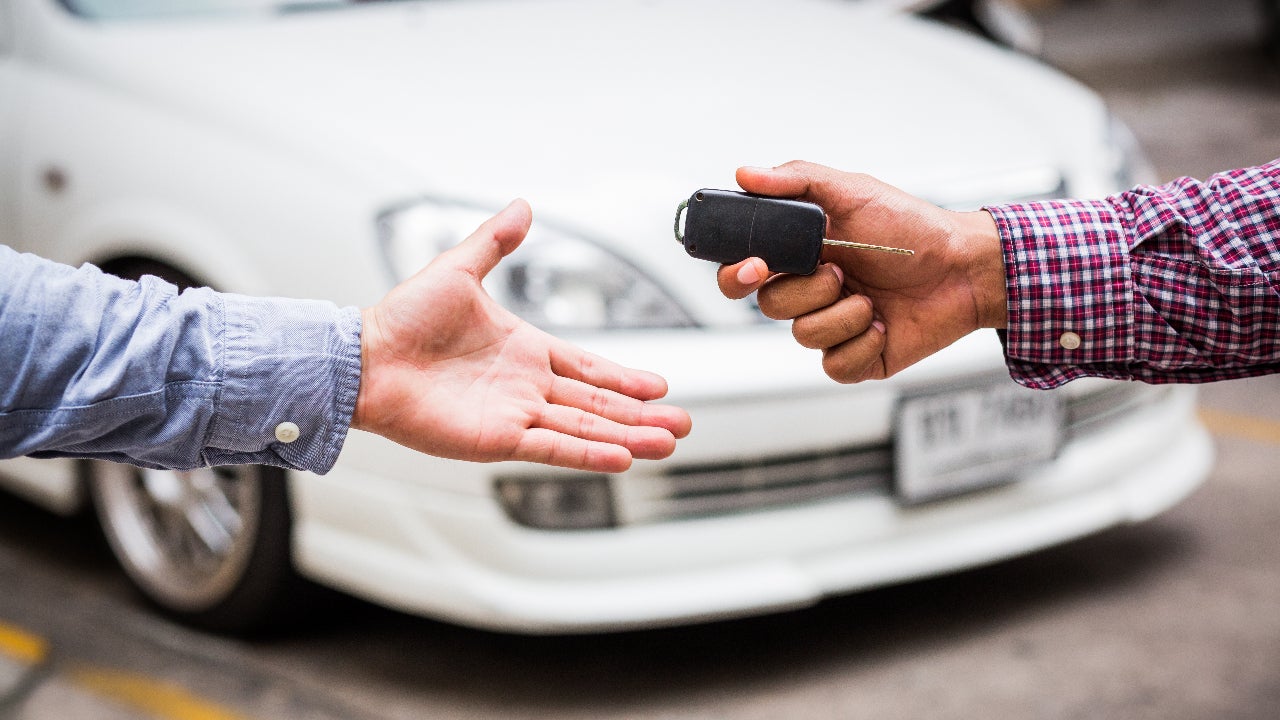How to buy a car with a lien

Key takeaways
- If a car is under a lien, the auto loan lender is still the primary owner of the car’s title, and the seller must pay off the loan before the car title can be transferred to you.
- You can check to see if the car has a lien with sources like the DMV, a title search or the car’s history report.
- Be sure to get an agreement in writing and consider using an escrow service to protect your money.
If you are considering buying a used car from a private seller, you may encounter a car that still has a lien on it from a lender. This can make the purchase more complicated — but not impossible. It will mean taking a few extra steps to ensure the lien is removed before the title is transferred to you, such as contacting the lienholder and getting an agreement in writing.
What a car lien is
A car lien lists the auto loan lender as the primary owner on the title. It is a contract that serves as a safeguard for a lender in case a borrower defaults. The lienholder can use the lien as a basis to repossess the vehicle, which is why auto loans are considered secured loans.
Once an auto loan is fully paid off, the lienholder is released from the loan and the car is now owned outright by the borrower.
You can legally sell a car with a lien, but you first need to request permission to sell from your lender — since they’re technically the owner.
How a lien affects your car purchase
When buying a vehicle with a lien from a private party, ensure that the lien is removed before finalizing the payment.
If you’re buying with cash
When you pay cash, you may be able to work directly with the lienholder to pay off the remaining balance yourself. Start by contacting the current lienholder to determine the total amount due to release the car.
Then, negotiate with the seller. They will likely want to sell the car for a profit, but if you know the payoff amount, you may be able to get a good deal — and can avoid paying more than the vehicle is worth.
If you’re buying with a loan
Getting a private party auto loan should also be relatively simple. You can share the details of the purchase with your lender so it can facilitate paying off the lienholder. The remaining money, if there is any, goes to the seller.
Once the lien has been paid in full, you or your lender will receive the title to register the vehicle in your name. Your lender will be listed as the new lienholder until you pay off your loan.
If the seller pays off the loan before the purchase
The sale can proceed easily if the vehicle’s seller pays off their auto loan and obtains the title before the sale, eliminating the lien. However, this option isn’t possible for some people, especially those who owe tens of thousands of dollars on a newer car or those who owe more than the car is worth.
If, for example, the seller owes $20,000 on a car that sells privately for $17,000, they will still have to pay the lender $20,000 — $3,000 more than they’re getting from the sale. In such cases, the seller may choose to refinance the auto loan’s remaining balance into an unsecured loan, like a personal loan, in order to have the auto loan discharged.
How to protect yourself when buying a car with a lien
However you handle this situation, be sure to write up a contract that addresses how the lien will be removed or transferred. While it’s not required in all states, creating a bill of sale outlining the transaction is still wise. Make sure that it is dated and signed by both parties so everyone has a record of the sale.
To further learn how to protect yourself when buying a car with a lien, you may look into using a third-party escrow service to handle the financial side of this transaction. An escrow service will help ensure that the money for the sale is transferred securely. Just be aware that escrow companies charge fees for their services — and set it up with the seller to ensure you are both using a legitimate company.
How to check if the car you’re buying has a lien
These steps can help you determine whether the car you’re buying has a lien.
- Look up the vehicle identification number (VIN) with your state’s Department of Motor Vehicles (DMV). If there is a lienholder listed on the title, the DMV will be able to tell you.
- Ask the seller directly. They should be upfront about the car’s ownership status. You can also check the VIN, title and vehicle history report to confirm the seller is being honest.
- Search the title. The National Motor Vehicle Title Information System is a good starting point for finding lienholder information.
- Get a vehicle history report. Autocheck and Carfax are two well-known companies that list lien history alongside previous maintenance, damage and owners.
Bottom line
Typically, a lien won’t cause any problems during the purchase process. But to ensure the process goes smoothly, search for the details of the lien using vehicle history reports, the DMV or the National Motor Vehicle Title Information System. You should also research pricing, line up your own auto financing and get any agreements you make with a private seller in writing.
Why we ask for feedback Your feedback helps us improve our content and services. It takes less than a minute to complete.
Your responses are anonymous and will only be used for improving our website.






